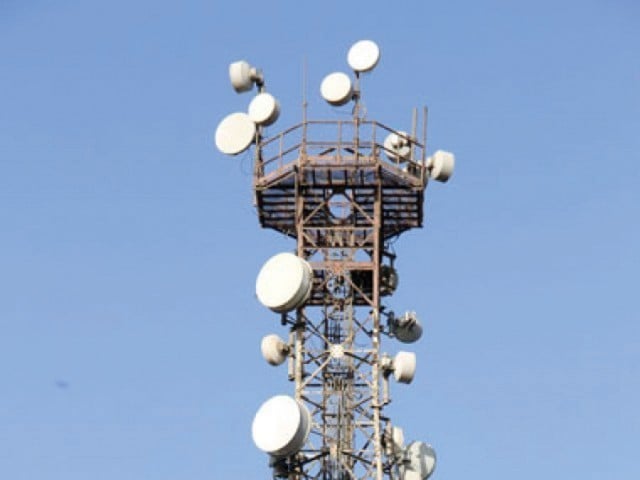Peace Sells...but Who's Buying?

"Megadeth's "Peace Sells... but Who's Buying?" is a thrash metal anthem that critiques societal apathy towards peace and the perceived hypocrisy within political systems. The song questions the genuine commitment of world leaders and the public to achieving peace, juxtaposed with the reality of ongoing conflicts and the business of war. This thematic critique can be applied to analyze the complexities surrounding efforts to establish ceasefires and peace in regions like Ukraine and Israel, reflecting the broader challenges faced by the international community in reconciling idealistic aspirations for peace with geopolitical realities.
The United Nations (UN) has been actively involved in efforts to promote peace and resolve conflicts in the Middle East, including the longstanding Israeli-Palestinian conflict, through a variety of measures and initiatives. Given the complexity and sensitivity of these issues, the UN's role encompasses diplomatic efforts, humanitarian aid, and support for peace processes. Here are some of the key recent actions and approaches by the UN concerning conflicts in the Middle East, particularly regarding Israel and its neighbors:
- Peace Negotiations and Diplomacy: The UN, primarily through the United Nations Security Council (UNSC) and the General Assembly, continues to advocate for a two-state solution as a long-term resolution to the Israeli-Palestinian conflict. It supports negotiations between the parties to achieve peace based on international law, relevant UN resolutions, and previous agreements.
- UNRWA (United Nations Relief and Works Agency for Palestine Refugees in the Near East): UNRWA provides critical education, health care, social services, and emergency aid to millions of Palestinian refugees in the Gaza Strip, the West Bank, Jordan, Lebanon, and Syria. The agency plays a crucial role in stabilizing the region by supporting the basic needs of the Palestinian refugee population.
- Humanitarian Aid and Relief Operations: The UN, through various agencies including the Office for the Coordination of Humanitarian Affairs (OCHA), provides humanitarian assistance to populations affected by conflicts in the Middle East, including in Syria, Yemen, and Iraq. This aid includes food, shelter, medical care, and support for displaced persons.
- Monitoring and Reporting: The UN monitors and reports on violations of international law and human rights abuses in conflict zones. Special Coordinators and Envoys, such as the UN Special Coordinator for the Middle East Peace Process, regularly report to the UNSC and engage with parties on the ground to advocate for peace and adherence to international law.
- Peacekeeping and Security Operations: While there are no active UN peacekeeping forces directly between Israel and Palestine, the UN has deployed peacekeeping operations in the broader Middle East to monitor ceasefires, prevent the spread of conflicts, and support the implementation of peace agreements. Examples include the United Nations Interim Force in Lebanon (UNIFIL) and the United Nations Disengagement Observer Force (UNDOF) in the Golan Heights.
- Engagement with Regional and International Partners: The UN works closely with regional organizations and international partners, including the Arab League and the Quartet (comprising the UN, the United States, the European Union, and Russia), to coordinate efforts for peace in the Middle East. This includes supporting dialogues and reconciliation processes among Palestinian factions.
The effectiveness of the UN's actions in the Middle East is subject to the complexities of international politics, the sovereignty of its member states, and the varying degrees of cooperation from conflict parties. Despite challenges, the UN remains a pivotal platform for international efforts aimed at achieving peace and stability in the region.
The United States, as a founding member and one of the five permanent members of the United Nations Security Council (UNSC), has had a significant influence on the organization's efforts, including those related to global peace and security. The U.S. has used its position to shape UN actions in ways that align with its foreign policy objectives. However, this alignment has sometimes led to perceptions of conflict between U.S. actions and broader UN efforts, particularly in regions where the U.S. has strong strategic interests, such as the Middle East. Here are some key areas where U.S. influence on the UN has been evident, along with instances that have raised concerns about alignment with UN efforts:
1. Veto Power in the Security Council
The U.S. has, at times, used its veto power in the UNSC to block resolutions that it perceives as counter to its interests or those of its allies, including Israel. This has been particularly evident in resolutions addressing the Israeli-Palestinian conflict, where the U.S. has often vetoed measures critical of Israel, citing a belief in direct negotiations between the parties as the path to peace and arguing that certain resolutions are biased against Israel.
2. Financial Contributions and Support
As the largest financial contributor to the UN, the U.S. has significant leverage. It has used this leverage to push for reforms within the UN system and to influence the agenda and priorities of UN bodies. However, it has also threatened to withhold funding over decisions or actions it disagrees with, such as funding for UN agencies that recognize Palestine as a member state or support programs perceived to be against U.S. policy.
3. Peacekeeping and Military Interventions
The U.S. has played a crucial role in supporting or opposing UN peacekeeping missions. In situations where the U.S. sees UN missions as aligned with its interests, it has provided support. However, in cases where the U.S. opts for unilateral or coalition military action without explicit UN authorization (as in the case of the 2003 invasion of Iraq), it raises questions about the relationship between U.S. foreign policy and UN efforts for peace and security.
4. Diplomatic Engagements and Negotiations
The U.S. has actively engaged in diplomatic efforts within the UN framework to address various global issues, including nuclear non-proliferation, counter-terrorism, and conflict resolution. While these efforts often support UN objectives, the U.S. has also pursued parallel negotiations outside the UN framework when it believes it can achieve more favorable outcomes, as seen in various Middle East peace processes.
5. Human Rights and International Law
- The U.S. has championed human rights and the rule of international law through the UN, yet it has also been criticized for not ratifying certain international treaties and for practices perceived as violating international norms (e.g., detainee treatment in the context of counter-terrorism efforts). Such actions have sometimes been seen as undermining UN principles and efforts.
- The relationship between U.S. foreign policy and UN efforts is complex and multifaceted. While the U.S. supports the UN's goals of peace, security, and development, it also prioritizes its national interests and foreign policy objectives. This has led to both collaboration and tension, reflecting the inherent challenges of balancing national interests with global governance and collective action. The U.S.'s influence on the UN is a powerful tool for shaping international norms and outcomes, but it also carries the responsibility to align its actions with the principles and objectives of the UN to the greatest extent possible, fostering a more peaceful and cooperative international order.
- In the context of Ukraine, ceasefire efforts have been numerous, especially since the conflict in Eastern Ukraine began in 2014. Various international bodies, including the UN and the Organization for Security and Co-operation in Europe (OSCE), have been involved in negotiating ceasefires and peace talks. However, the "Peace Sells" narrative can be seen in the repeated breakdowns of these ceasefires, highlighting the challenges of achieving lasting peace when underlying issues remain unresolved and external interests are at play. The song's skepticism mirrors the disillusionment felt by many as ceasefires are announced with hope, only to be violated, leading to questions about the commitment of involved parties to the peace process and whether the efforts are genuine or merely for show.
- In the Israeli-Palestinian conflict, the quest for peace has been long and fraught with setbacks. Numerous attempts at ceasefire agreements, peace talks, and international interventions have been made over the decades. Yet, peace remains elusive, with each side having deep-seated grievances and conditions for peace that have been difficult to reconcile. The "Peace Sells" perspective sheds light on the cynicism and frustration that grows with each failed attempt at peace, questioning the political will of both sides and the international community to truly invest in the hard compromises needed for peace. It also reflects on the role of external influence and how geopolitical interests often complicate peace efforts.
The skepticism and critique embodied in "Peace Sells... but Who's Buying?" resonate with the frustrations and challenges of ceasefire and peace efforts in Ukraine and Israel. The song underscores the gap between the ideal of peace and the reality of its pursuit, where interests, power dynamics, and historical grievances complicate straightforward resolutions. It highlights the disillusionment with the peace process, where declarations and agreements can sometimes feel more performative than substantive.
Moreover, the song can be interpreted as a call to question and hold accountable those in power, to demand genuine efforts towards peace rather than accepting the status quo. It serves as a reminder that while peace is a universally espoused goal, the path to achieving it is fraught with complexities that require more than just lip service. In both Ukraine and Israel, as well as other conflict zones, "Peace Sells" echoes the sentiment that achieving real peace involves confronting hard truths, making difficult compromises, and, most importantly, buying into the process with sincerity and commitment to lasting solutions.
The song concludes with a reminder of democratic ideals, questioning whether the foundational principle of governance by the people, for the people, holds true. In the context of Ukraine and Israel, it calls into question whether the efforts towards peace genuinely reflect the will and interests of the people affected by conflict.
Through its poignant and provocative lyrics, "Peace Sells... but Who's Buying?" challenges listeners to consider their own roles in supporting or undermining peace. It critiques the systems and attitudes that perpetuate conflict while calling for a more engaged and sincere approach to solving global issues.











